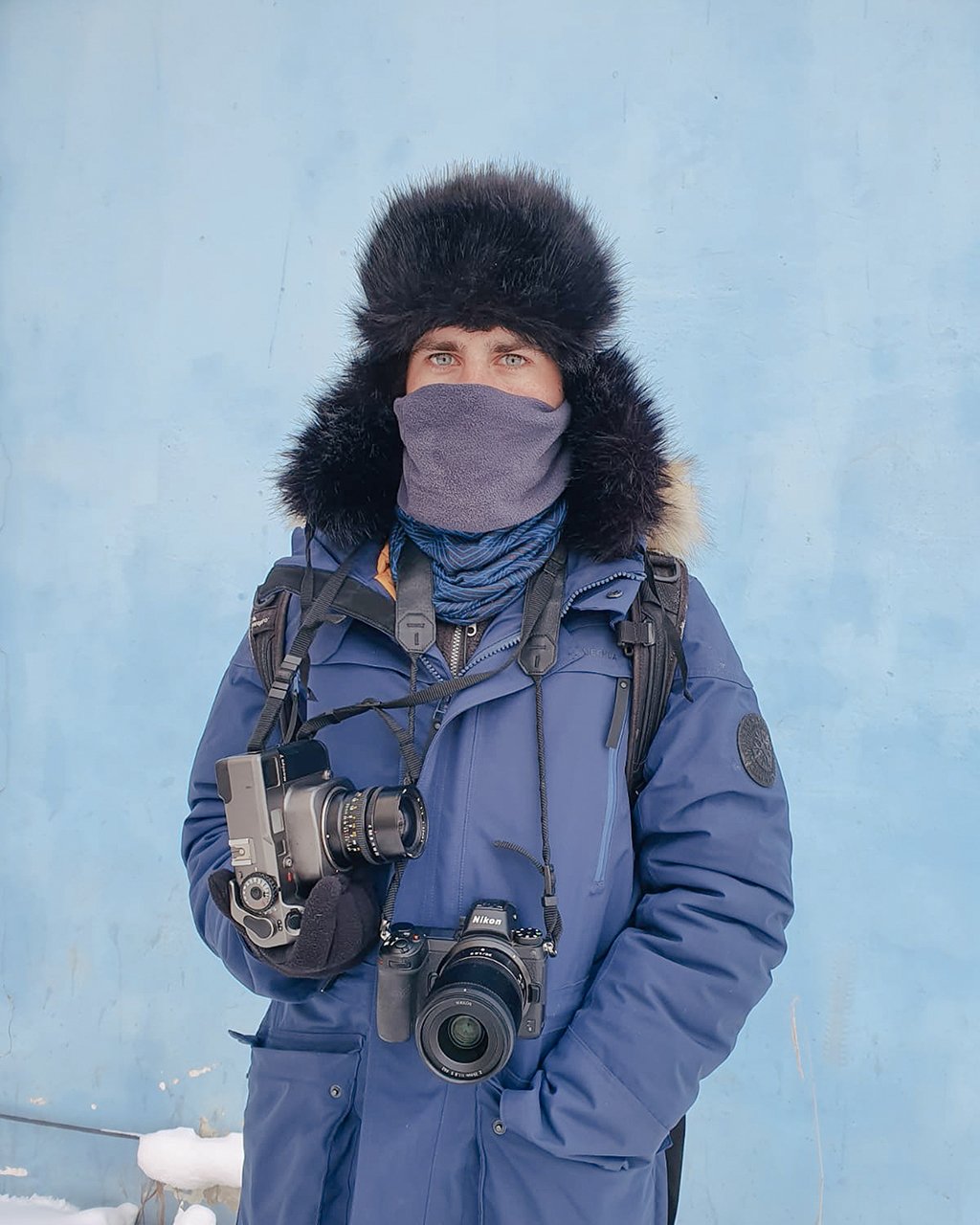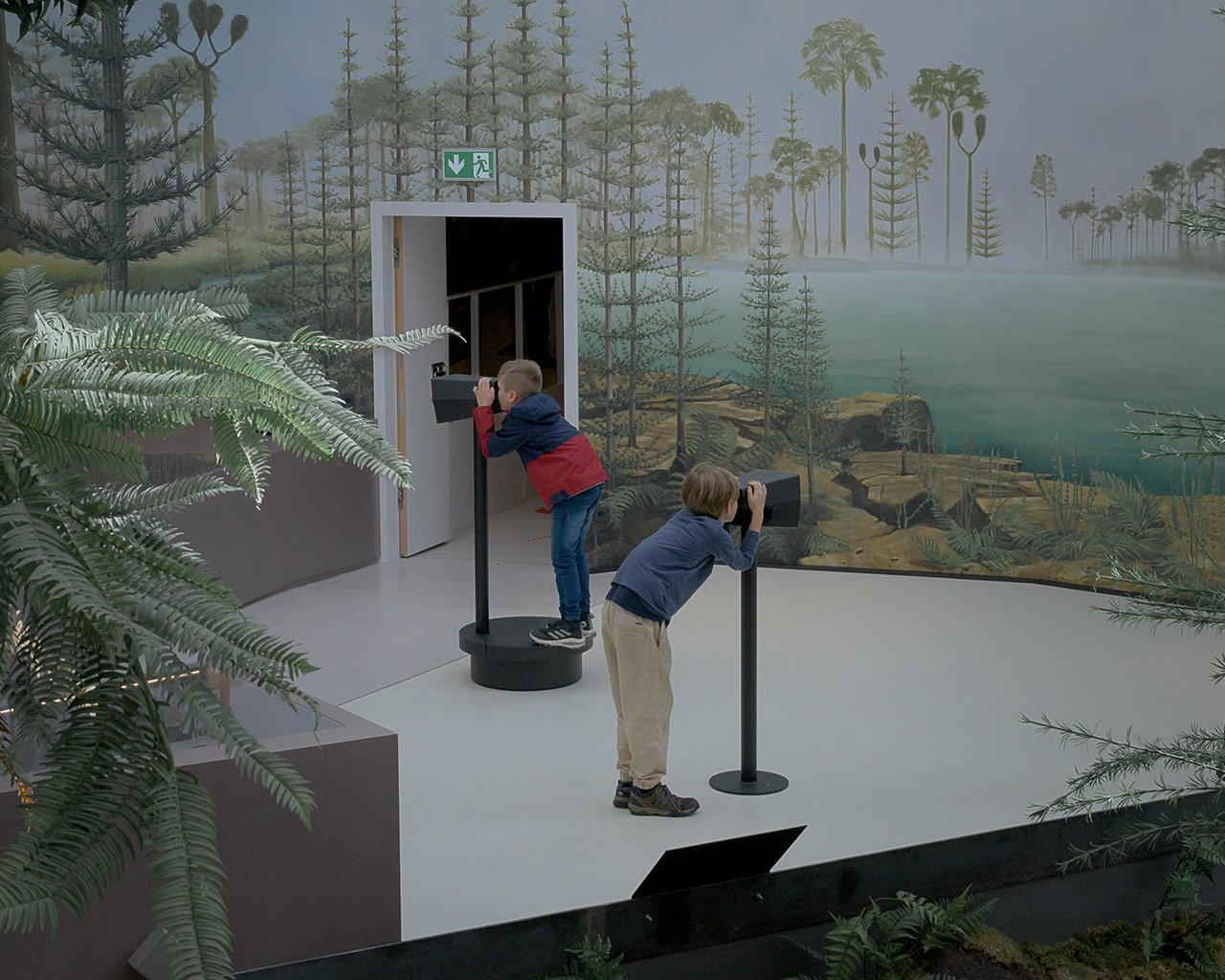Ingmar Björn Nolting: Humanity In Focus
Ingmar Nolting, born in 1995, is a German documentary photographer whose work transcends the boundaries of traditional photojournalism. Known for his profound ability to capture the essence of human experience, Nolting's images reveal intimate and powerful stories that reflect the complexities of contemporary life.
Nolting's passion for photography began during his early years, inspired by the works of iconic photographers and a deep curiosity about the world. He pursued his formal education in photography at the University of Applied Sciences and Arts in Dortmund, where he honed his technical skills and developed a unique visual language that combines a meticulous attention to detail with a narrative-driven approach.
In his recent works, Nolting condenses the moods and conditions of German society. With his restrained, stage-like images, he describes and explores the complex interconnections of environment, politics, and social dynamics. Poetically and at the same time paradoxically, he photographs the transformation of his homeland, Germany – amidst division, rearmament, pandemic, and climate crisis.
Nolting's work has been featured in numerous international publications and exhibitions, earning him accolades and recognition within the photographic community. He is a recipient of several prestigious awards, including the Leica Society International Grant, Hopper Prize, Getty Grant, World Report Award and the BarTur Photo Award which celebrate his exceptional ability to tell compelling visual stories that resonate on a global scale. He received a scholarship by the German Art Fund and was a finalist for the Leica Oskar Barnack Award, W. Eugene Smith Student Grant and Alexia Grant. He regularly works for publications such as The New York Times, TIME Magazine, die ZEIT and der Spiegel.
In addition to his photographic endeavors, Nolting is an advocate for ethical storytelling and visual literacy. He regularly conducts workshops and lectures, sharing his expertise and inspiring the next generation of photographers to approach their work with integrity and a deep sense of purpose. Nolting co-founded the collective DOCKS for humanist photography and is part of the advisory board of the laif cooperative.
Ingmar Nolting's photography is not just a reflection of the world around us, but a bridge that connects people across cultures and experiences. His images invite viewers to pause, reflect, and engage with the human stories that shape our collective existence, making him a significant and influential voice in contemporary documentary photography.
An Anthology of a Changing Climate (2023 – ongoing)
On a global scale, Germany‘s intentions are ambitious. The country aims to become a climate-neutral industrial nation by 2045. This places Germany among the international pioneers in the fight against the climate crisis. The path to climate neutrality is the “greatest modernisation and prosperity safeguarding project since World War II“, according to Dirk Messner, the President of the German Environment Agency. The phase-out of coal by 2038, fifteen million electric cars on the roads by 2030 and a massive expansion of renewable energies were enshrined in law.
However, the status quo is as complex as it is paradoxical. While activist groups continue to push the boundaries of climate protest, the expansion of renewable energies is faltering. Despite surveys indicating broad social support for climate protection, public backing is clearly waning when it comes to practical measures. Recently, dependence on Russian gas, the resulting energy crisis, economic hardships and inflation exacerbated the social climate.
“An Anthology of Changing Climate“ is a journey through German society divided on climate issues, addressing the struggle for guiding narratives and the question of whether it is possible to find sustainable answers to the climate crisis through social consensus.
My work is a document of Germany‘s intricate transition towards climate neutrality. It is driven by the observation of social and ecological dynamics and their interrelationship. I seek for photographs that condense these dynamics in order to interweave them in a larger narrative. For me, my work is a way of reflecting on the roots of societal and climatological change within complex modern societies. I do believe that understanding the human condition within its environment is pivotal for grasping the past, navigating the evolving present, and envisioning potential futures.
A scene at the amusement park “Wunderland Kalkar” in Kalkar, Germany on May 21, 2023. The amusement park was built around the former nuclear power plant Kalkar. The nuclear power plant was completed in 1985 but never went online due to high costs and political concerns. Today, it is considered an investment ruin. Germany completely phased out nuclear energy by 2023. Permanent disposal sites for nuclear waste have not yet been found, and it is assumed that no disposal site will be operational until 2050.
People are blocking the bucket-wheel excavator on the edge of the Garzweiler II open-pit mine near the outskirts of Lützerath, Germany, on January 8, 2023. When individuals are present in the danger zone at the edge of the mine, the bucket-wheel excavator must pause its operation until the affected area is vacated by those individuals.
Children look through augmented reality at a replica of a carboniferous forest in the Museum am Schölerberg, Osnabrück, Germany on October 8, 2023. The new permanent exhibition with trees, plants and animals from the coal age is intended to show visitors how coal was formed and that the burning of fossil resources is responsible for climate change and the extinction of species. The museum also shows future perspectives and models for solutions.
The solar park located outside the village of Feldheim, Germany on February 21, 2023. Feldheim is the first village in Germany to be completely self-sufficient in energy. With the help of wind energy, photovoltaics, biogas, biomass, a regulating power plant and a local heating network, the village covers its own needs. The large amounts of surplus energy generated in the process are fed into the public grid.
Armin Laschet and Angela Merkel (German Chancellor) sing the German national anthem in front of a video projection of the Zugspitze at the closing rally of the CDU election campaign at the Nockherberg in Munich, Germany, on September 24, 2021. After 16 years as German Chancellor, Angela Merkel did not stand for re-election. In a press conference Merkel acknowledged the failures and disappointments she had experienced in climate protection. Measured against the ambition to limit global warming to two degrees, “not enough has happened“ during her chancellorship, Merkel said.
An excavator clears barricades on the first day of the eviction of Lützerath, Germany while an activist tries to slow down the eviction by hanging in a structure on January 11, 2023. Since 2020, environmental activists have occupied the trees, fields and houses in Lützerath, a hamlet near the North Rhine-Westphalian town of Erkelenz. They oppose the eviction of the village and the energy company, which wants to extract the millions of tons of lignite that lie beneath the loess soils of Lützerath. The small village became a symbol in the fight against the climate crisis.
Two men in front of a forest fire in Jüterbog, Germany, on June 5, 2023. The forest fire is located on a former military training ground contaminated with ammunition. Due to the presence of ammunition, dry conditions, and increasing winds, the fire spread rapidly. The fire department cannot directly combat the fire due to the risk of explosions, so they opted for a “controlled burning“ of the affected woodland areas.








